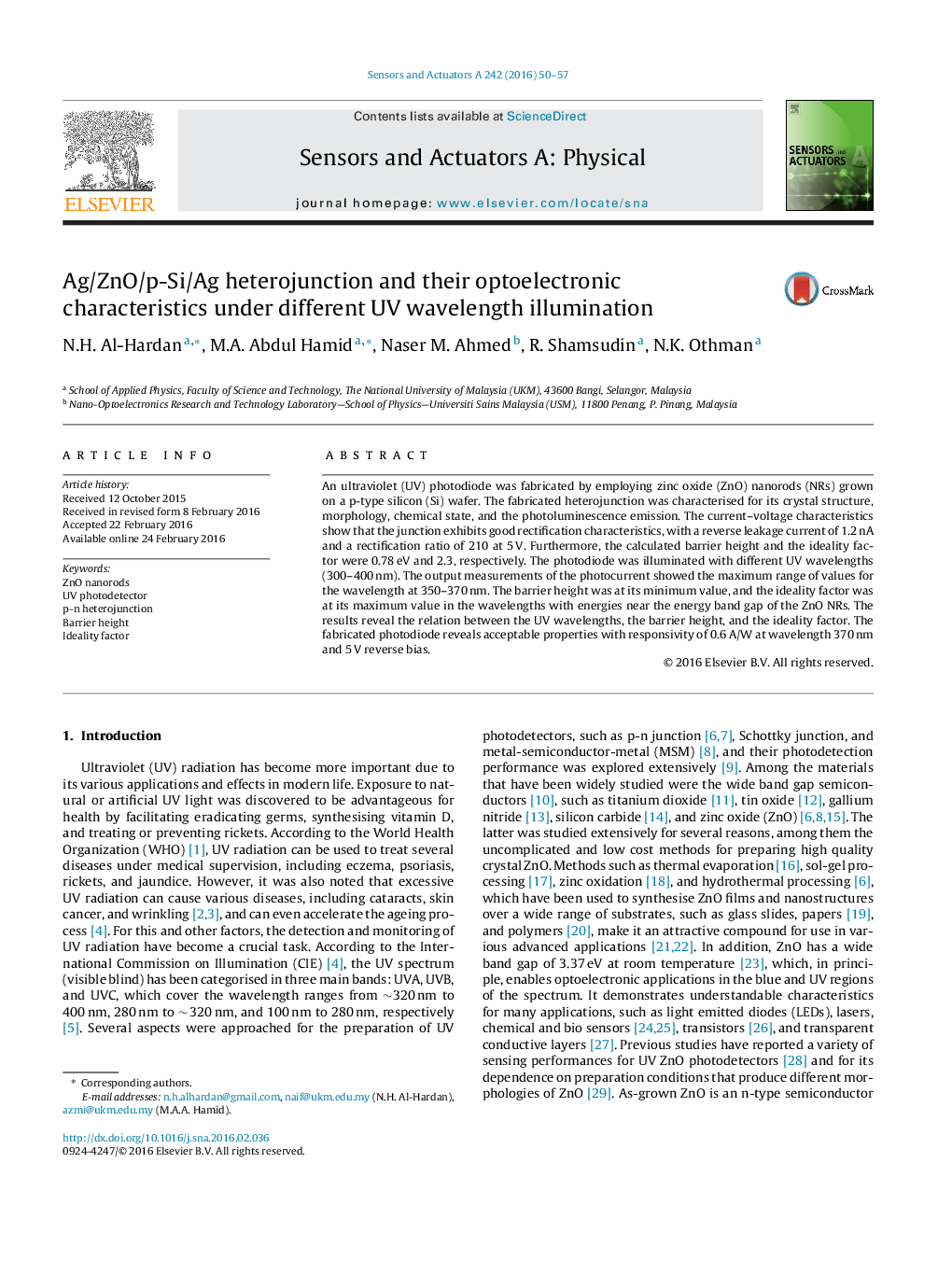| Article ID | Journal | Published Year | Pages | File Type |
|---|---|---|---|---|
| 7134956 | Sensors and Actuators A: Physical | 2016 | 8 Pages |
Abstract
An ultraviolet (UV) photodiode was fabricated by employing zinc oxide (ZnO) nanorods (NRs) grown on a p-type silicon (Si) wafer. The fabricated heterojunction was characterised for its crystal structure, morphology, chemical state, and the photoluminescence emission. The current-voltage characteristics show that the junction exhibits good rectification characteristics, with a reverse leakage current of 1.2Â nA and a rectification ratio of 210 at 5Â V. Furthermore, the calculated barrier height and the ideality factor were 0.78Â eV and 2.3, respectively. The photodiode was illuminated with different UV wavelengths (300-400Â nm). The output measurements of the photocurrent showed the maximum range of values for the wavelength at 350-370Â nm. The barrier height was at its minimum value, and the ideality factor was at its maximum value in the wavelengths with energies near the energy band gap of the ZnO NRs. The results reveal the relation between the UV wavelengths, the barrier height, and the ideality factor. The fabricated photodiode reveals acceptable properties with responsivity of 0.6 A/W at wavelength 370Â nm and 5Â V reverse bias.
Related Topics
Physical Sciences and Engineering
Chemistry
Electrochemistry
Authors
N.H. Al-Hardan, M.A. Abdul Hamid, Naser M. Ahmed, R. Shamsudin, N.K. Othman,
